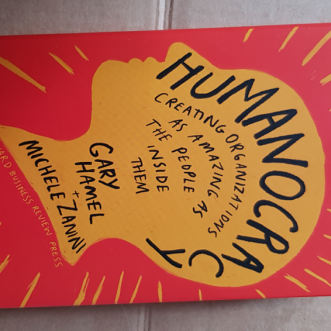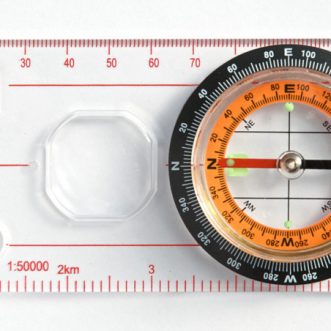
Systems
Of course I had to share this from Seth. A bonus post to make up for missing yesterday’s:
https://seths.blog/2020/09/when-can-we-talk-about-your-system/

Of course I had to share this from Seth. A bonus post to make up for missing yesterday’s:
https://seths.blog/2020/09/when-can-we-talk-about-your-system/

Axioms are the foundations of ‘grammars’. They are the givens, things we don’t have to question, that we can take for granted, that are (at least to us) self-evident. Otherwise it would be nigh-on impossible to get anything done. Imagine a whole orchestra having to agree what ‘C’ means before they start playing, or having to define exactly what you mean by a ‘metre’ on every page of a set of building drawings.
For a business it’s different. Remember, “When you make a business, you get to make a little universe where you control all the laws. This is your utopia”(Derek Sivers).
That means you define your own business axioms – how many times it’s acceptable to let the phone ring before you answer it, who is most important, the boss or the customer, how much it’s legitimate to care about the environment in relation to how your busines makes money.
If the grammar of your business can be written down as what I call a Customer Experience Score, the axioms that govern what that score looks, sounds and feels like are what I call your Promise of Value.
Both are unique to your business. Together, explicit or otherwise, they are the reason your best clients buy from you, stay loyal to you, and tell their friends about you. Both are worth writing down.

My mother, who’d been taught housework by a female version of Felix Ungar out of ‘The Odd Couple‘ (a regime that soon collapsed in the face of 7 Oscar Madison-like children), loved to collect books about ‘women’s work’. Perhaps to see how the men who usually wrote them imagined these things should be done.
Two of these books stick in my memory. One was ‘The Mechanical Baby’, a history of childcare from ancient times onwards, I don’t remember the title of the other, but it might have been simply, ‘Housework’.
The housework one sticks because in it, the author applied all sorts of efficiency measures, taken from the workplace. For example, he suggested replacing the big Spring Clean, with an Autumn Clean. After all, Summer is when we fling windows open and let in all the dust, debris and insects from the garden. It’s also when all the spiders build their cobwebs in various corners of the house, so that by September, it looks like we’ve left up last year’s fake snow from Christmas. Or is that just my house?
Anyway, I think he had a really good point, but I’d recommend both, and go for Equinoctial Cleans, one as Winter turns to Spring, and the other as Summer turns to Autumn. Spring for de-cluttering, opening up and airing everything, Autumn for cleaning down, tidying away and mending, ready for the long haul of Winter. Both are a kind of fresh start, but with a slightly different emphasis.
Of course, both can apply to business too.
What’s the plan for your business Autumn Clean?

This arrived yesterday evening (see why I need an extension?).
The promise is to “show you how to create an unstoppable movement to create an organization that’s fit for the future and fit for human beings.”
I’m looking forward to reading it, although I suspect it won’t go far enough for me.
I’ll keep you posted.

Ideas thrive on being shared. We humans can’t help ourselves – we love to pass them on, to our contemporaries, to our children, beyond, if we can. After all what is immortality but having our ideas remembered?
Sharing an idea changes our collective brain, modifies old ideas and leads to the creation of new ones. Every shared idea adds to that ever-growing pile that all are free to rummage through, in search of the missing piece of their particular puzzle.
All without destroying the original idea, or removing it from the mind that first thought of it.
For me, this is how ideas have worked all my life. It feels strange to see a really interesting idea and not be able to share it. It’s as if it’s been put behind bars, on show, but inaccessible.
I can’t help but ask: why would you do that to an idea?
Especially your own?

As you probably know, I have a bit of a book habit.
I read this one on Saturday, and for now all I’m going to say is that I recommend it.
I hope to share more later, but I’m asking permission first.
Have a great day!

It’s impossible to be right all the time, especially in the midst of ‘unprecedented’ happenings.
But it is entirely possible to be transparently fair all the time. Especially if you have a compass to guide decision-making where there is no map.
So, when you see ‘mistakes’ produced by an opaque process following an invisible compass, it’s legitimate, even necessary to ask questions:
With a clearly visible compass and a fair, transparent process for your business, your people can’t go far wrong. Even when they’re not right.

For as long as there have been humans, we have wanted to have the world remember, somehow, that ‘I was here’.
It won’t.
But if we embrace our transience and instead of using our energy to hoard – stuff, money, power, love – we use it to create systems that enrich people and planet, other human beings will.
For a little while at least.

I’ve just finished reading this book, the first of 3 I ordered after hearing Margaret Heffernan on the radio last week.
It’s a worrying and challenging read, exploring and explaining just how naturally easy it is for we humans not to see what’s in right in front of our eyes.
The reasons are varied, from feelings of affinity or love, wanting to fit in or please people in authority, too rigid systems, distance and disconnection, the bystander effect, a narrow focus on money or sheer cognitive overload and exhaustion. Sometimes, in the worst scenarios, such as Grenfell Tower or Texas City, several reasons combine and exacerbate each other.
The answer is to make ourselves see better. Systematically, intentionally, but never mechanically.
We do that by encouraging diversity of thinking and argument, by thanking whistleblowers, complainers and critics instead of sidelining them.
We do it by constantly reminding ourselves of what we are in business to do – to make and keep promises to human beings, our customers, and by eliminating the hierarchies, silos and long chains of command that get in the way of that.
We do it by creating transparent ways of working that keep our promise visible and support people to hold each other accountable as human beings for seeing what’s really there, and acting on it.
And of course the irony is that if we do these things well, we will create more value and do better financially. Because its not only bad things we make ourselves wilfully blind to, its also opportunities.

From an early age, we are taught to defer certain gratifications. “No pudding until you’ve eaten your veg”, “No playstation until you’ve done your homework”. We learn to put off children, hobbies, family, projects that are dear to us, until the weekend, or the holidays, or till we get promoted, or rich, or retire.
We are conditioned to put off the gratifications of living in the service of work.
On the other hand, we’re constantly being conditioned to gratify some of our wants immediately – chocolate, ice cream, fast food, fast fashion. Apps and gadgets are constantly being invented that allow us to gratify every consumptive whim in no time at all. ‘Alexa, did somebody say Just Eat?’
No wonder we’re stressed out. We’re being subjected to conflicting messages. Defer this gratification, but not that one. Put this off, but do this other thing right now.
What if we decided that the process of living was important? That there’s more to life than the instant gratification of childish wants, the accumulation of stuff, in the hope that it will compensate for the lack of enjoyment of the process by which we earn enough to buy it?
Coronavirus has given us a glimpse of this. And the world didn’t fall apart. In fact in some key respects it got better.
Let’s not waste that glimpse, queuing up outside Primark.